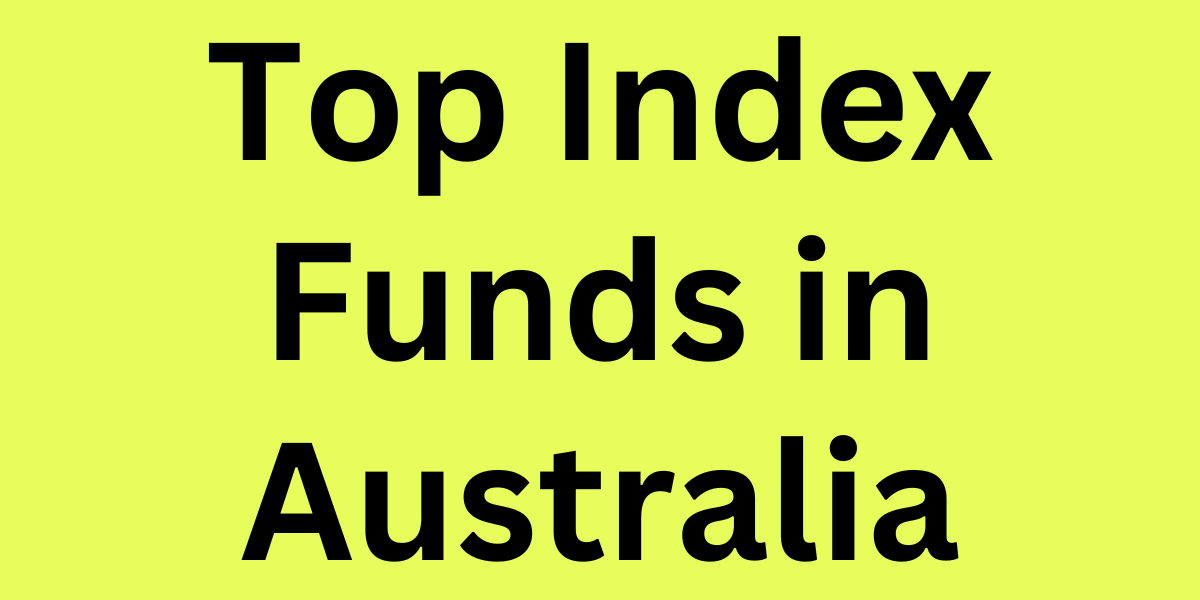Index funds are a popular investment option for Australians due to their low fees, broad diversification, and ability to track market performance. Here’s a detailed look at some of the top index funds in Australia.
Top Index Funds in Australia
Table of Contents
1. Vanguard Australian Shares Index Fund (VAS)
| Feature | Details |
|---|---|
| Index Tracked | S&P/ASX 300 Index |
| Management Fee | 0.10% p.a. |
| Key Highlights | – Exposure to 300 top Australian companies.- Well-diversified and low-cost. |
| Suitable For | Long-term investors seeking growth from Australian equities. |
2. BetaShares Australia 200 ETF (A200)
| Feature | Details |
|---|---|
| Index Tracked | Solactive Australia 200 Index |
| Management Fee | 0.07% p.a. (lowest in Australia). |
| Key Highlights | – Tracks Australia’s largest 200 companies.- Ideal for cost-conscious investors. |
| Suitable For | Investors looking for low-cost exposure to the Australian market. |
3. iShares Core S&P/ASX 200 ETF (IOZ)
| Feature | Details |
|---|---|
| Index Tracked | S&P/ASX 200 Index |
| Management Fee | 0.09% p.a. |
| Key Highlights | – Tracks the top 200 companies in Australia.- Highly liquid and widely traded. |
| Suitable For | Investors seeking stability and long-term growth. |
4. SPDR S&P/ASX 200 Fund (STW)
| Feature | Details |
|---|---|
| Index Tracked | S&P/ASX 200 Index |
| Management Fee | 0.13% p.a. |
| Key Highlights | – Established ETF with a long performance history.- Suitable for large investments. |
| Suitable For | Investors looking for reliability and liquidity. |
5. Vanguard MSCI Index International Shares ETF (VGS)
| Feature | Details |
|---|---|
| Index Tracked | MSCI World ex-Australia Index |
| Management Fee | 0.18% p.a. |
| Key Highlights | – Provides exposure to international developed markets.- Ideal for global diversification. |
| Suitable For | Investors looking to diversify globally. |
6. iShares S&P 500 ETF (IVV)
| Feature | Details |
|---|---|
| Index Tracked | S&P 500 Index (US Market) |
| Management Fee | 0.04% p.a. (very low). |
| Key Highlights | – Tracks the 500 largest companies in the U.S.- High growth potential. |
| Suitable For | Investors wanting U.S. market exposure. |
7. Vanguard Diversified Balanced Index ETF (VDBA)
| Feature | Details |
|---|---|
| Index Tracked | Diversified across multiple indices. |
| Management Fee | 0.27% p.a. |
| Key Highlights | – Balanced mix of equities and fixed income assets.- Designed for moderate risk investors. |
| Suitable For | Conservative investors seeking stability and income. |
Comparison Table of Top Index Funds
| Fund Name | Index Tracked | Fee (%) | Focus Area |
|---|---|---|---|
| Vanguard Australian Shares (VAS) | S&P/ASX 300 | 0.10 | Australian equities |
| BetaShares Australia 200 (A200) | Solactive Australia 200 | 0.07 | Cost-effective ASX 200 |
| iShares Core S&P/ASX 200 (IOZ) | S&P/ASX 200 | 0.09 | Top 200 Australian companies |
| SPDR S&P/ASX 200 Fund (STW) | S&P/ASX 200 | 0.13 | Established Australian fund |
| Vanguard MSCI International Shares (VGS) | MSCI World ex-Australia Index | 0.18 | Global diversification |
| iShares S&P 500 ETF (IVV) | S&P 500 (USA) | 0.04 | U.S. market exposure |
| Vanguard Diversified Balanced ETF (VDBA) | Multi-index | 0.27 | Mixed equities and bonds |
Key Factors to Consider Before Investing in Index Funds
- Fees and Costs – Lower fees can significantly boost returns over time.
- Liquidity – Highly liquid ETFs make it easier to buy and sell.
- Diversification – Opt for funds with broader market exposure.
- Performance History – Check long-term performance trends.
- Risk Tolerance – Match funds with your financial goals and risk appetite.
Top Index Funds in Australia FAQs
Q1. What is an Index Fund?
An index fund is a passive investment that tracks the performance of a specific index, such as the ASX 200 or S&P 500.
Q2. How do I buy Index Funds in Australia?
You can buy index funds through platforms like CommSec, SelfWealth, and Stake, or directly from fund managers like Vanguard.
Q3. Are index funds good for beginners?
Yes, index funds are beginner-friendly due to their simplicity, low fees, and diversification benefits.
Q4. How much do I need to start investing in index funds?
Many ETFs allow investments starting from $500–$1,000, depending on the broker.
Q5. Are index funds risky?
Index funds carry market risks as they mirror the index’s performance, but diversification often reduces overall risk.
Q6. Can index funds pay dividends?
Yes, some index funds distribute dividends based on the earnings of the underlying stocks or bonds.
Q7. Are international index funds better than Australian ones?
It depends on your goals. Australian funds focus on the domestic economy, while international funds provide global exposure.
Index funds offer Australians a cost-effective and reliable way to grow wealth over time. Before investing, assess your financial goals and risk tolerance, and consult a financial advisor if needed.
